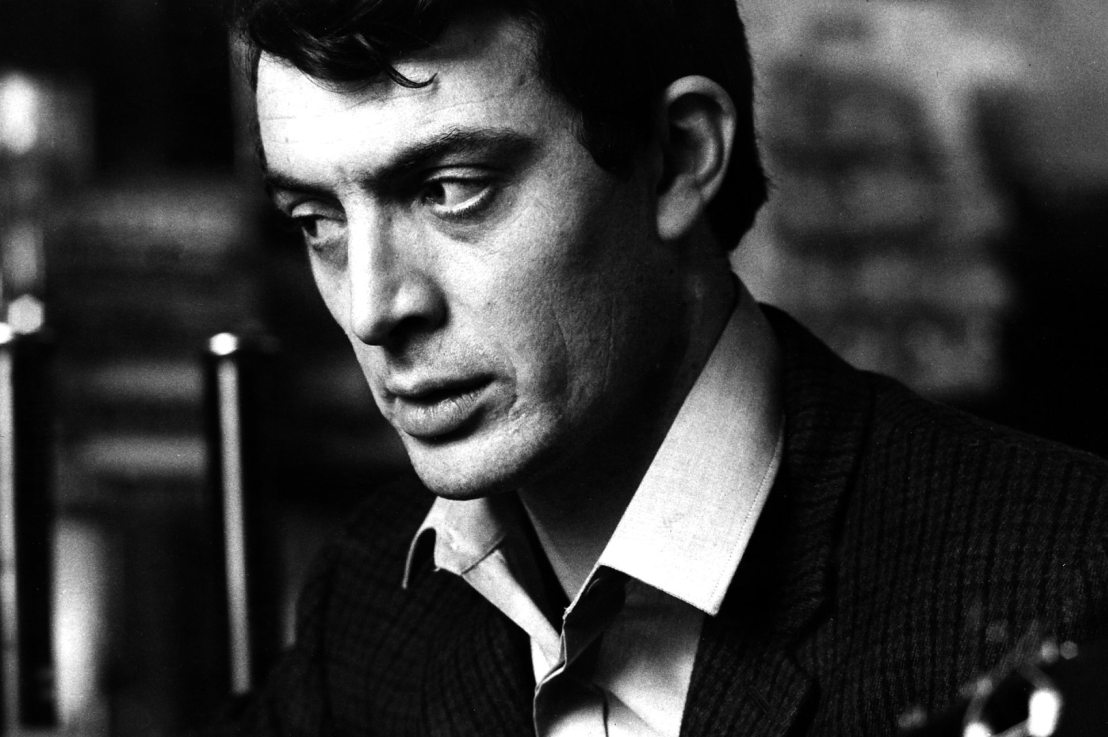Born in Leeds in 1938, Jake Thackray was a singer-songwriter who enjoyed television success in the 1960s and 70s. His highly-structured lyrics draw on influences from chanson francaise, including most notably Georges Brassens whose work he also translated into English, as well as folk and music hall traditions. His guitar playing, on which I don’t intend to focus much here, approached ‘a style somewhere between jazz and classical’, and is discussed in detail in this brief biography. Though mostly known as a social satirist and comedian, from appearances on shows like Braden’s Week and That’s Life with Esther Rantzen, Jake was also capable of tender love songs, political protest, and folk ballads which explored both the beauty and the poverty of English rural life.
Always uncomfortable with the life of a performer, the changing reception of his work, including his presentation of gender (see below, ‘A note on gender’) may have factored into his decision to wind down his musical career in the 1990s. Jake died in Monmouth in 2002, following financial problems and a struggle with alcoholism. A reissue of his work in 2006, Jake in a Box, heralded the beginnings of a revival of public interest, but up to this point no full-scale study of his career and output has been published. Two biographies are, however, in progress: one authored by Thackray tribute artist John Watterson, who performs as Fake Thackray, and one by Leeds-based academic Peter Mills. My favourite description to Jake’s work, in the meantime, remains this touching tribute by Nick Currie, a longtime fan who records as Momus:
He was a perverse bugger, Jake. So very English and yet so essentially French, so vehement and yet so whispery, so underrated for a man who was, in the 60s, a ‘household face’, so very electronic for a folk singer, so populist for one so aloof and didactic. Jake, savage and yet tender, caustic and yet sentimental, so timeless and so topical! Great Jake, austerely hieratic yet surprisingly sexy, sexist, smutty, saucy, in such a sixties way! Jake, smooth, mild, sinister and cheeky as milk!
Why now?
2017 marks fifty years since the release of Jake Thackray’s first album, The Last Will and Testament of Jake Thackray, by EMI in 1967. Having only discovered his work in around 2013 myself, I missed the tenth anniversary of Jake’s death, and his centenary – 2038 – seems rather far away to pencil in a project of this kind. That aside, though, I think that despite the aspects of his work that seem most firmly rooted in the mid-twentieth century (see below), Jake has a lot to say to us today. His songs are quintessentially English, with a focus on the kind of proud regional identity which can easily get lost in a London-centric political and media climate. They’re also unashamedly European in their idiom. Jake’s work is cosmopolitan without being pretentious, and rooted in place without being parochial. I’m not trying here to claim Jake for the Remain camp in the recent EU referendum (I don’t know enough about the political leanings his biographers will hopefully uncover), but his work has a fundamental openness to what might seem like some very un-English ideas.
It’s also fully engaged with issues of class privilege, celebrating the dignity of ordinary working people without turning them into sentimental caricatures; if Jake’s characters drink, smoke and break the law, they largely do so with a joyous disregard for the instruments of petty authority who know very little about their lives. His work is poetic, political, progressive in some ways and conservative in others, alert to bullshit in a variety of forms – but also genuinely, committedly funny, in a way that’s rare in contemporary popular music. He could make words dance, and I think it’s about time someone noted their choreography.
A note on gender
Jake lived and performed through the 1960s, 70s and 80s – a period when gender roles were in flux, when much was changing and much hadn’t changed. Towards the latter end of his career, some commentators detected elements of misogyny in his work, scrutiny of which contributed to his decline from prominence. Although Jake assumed a variety of personae and tones, including the classic defences of comic irony, as a feminist writing in 2017 I can’t in good conscience explain away every gendered joke, and nor would I want to. There are lines and patterns of thinking in Jake’s work which I find problematic, some of which fit into familiar narratives of the social history of masculinity. This complicates, but does not undermine, the fact that the vast majority of the songs advocate for humanist, egalitarian principles, including in many cases the right of female characters to exert their personal agency in the face of patriarchal oppression. I think it’s uncontentious to state that Jake Thackray’s songs contain both feminist and anti-feminist sentiments, and that a responsible and responsive reading of his work will address both as they arise.
A handful of songs also invoke race, mostly with the explicit aim of critiquing prejudice and discrimination – some of these make their point by using racial slurs which a contemporary white author would perhaps be likely to avoid. In the spirit of politically-informed practical criticism, I will also consider these instances with due respect and care.
